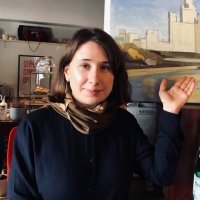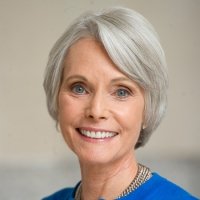Women's Political Leadership in Belarus, Russia, and Ukraine
According to UN Women, women serve as heads of state in only 22 countries. However, 2020 was a crucial year for women in politics in Eurasia: in Moldova, Maia Sandu was elected president, in Belarus, Svetlana Tikhanovskaya was hailed as the primary opposition candidate against Aleksandr Lukashenko, in Ukraine, the percentage of female MPs was double that of the past parliament, and in Russia, a new generation of women were running for office and promoting important political agendas, despite the lack of competitive politics in the country. In conversation with Jill Dougherty, experts Maryna Rudenko, Katsiaryna Shmatsina, and Valeriya Utkina discussed how female leadership has evolved in Ukraine, Belarus, and Russia and what obstacles women still face in holding office.
Selected Quotes
Valeriya Utkina
“Russia is responsible for the position of women and for gender equality because there are a lot of international acts that Russia signed […] as far as today’s situation, it’s drastically different. I need to mention this very important point.”
“Women are underrepresented at the decision-making level and sometimes for conservative people it’s not clear why, because in particular, in the cabinet of ministers, it’s 32 people and it’s only three women and it’s about 9% percent, but still they can say that it’s three women.”
“In 2017, when they asked me at one of the public talks ‘what is going on with the feminism in the Russian Federation’, I said that now it’s not [as] popular as [it] could be and it’s only local initiatives and what is in 2021, the situation is changing a lot.”
Maryna Rudenko
“Last autumn we had elections to the local authorities and 140,000 women candidates and 36% of them became members of the local electoral bodies and heads of the amalgamated communities.”
“We received evidence that women as politicians advocate for European integration and for gender mainstreaming and security sector reform.”
“Unfortunately, there are a lot of stereotypes—as Valeriya said—that exist still in Ukrainian society, and there are anti-gender movements in Ukraine which are supposed by the council of churches, for example, which advocates for some traditional values—nobody knows what traditional values means—but we have these attacks against women’s rights defenders.”
Katsiaryna Shmatsina
“At the previous parliamentary elections—2016 I believe—there were two women opposition candidates who were allowed to get into the parliament […] we know that the elections were rigged and that was a purely political decision to look good for the Western actors, and then those two women were allowed to get in. Again, the rationale was probably that those women were less dangerous in the eyes of the authorities compared to male candidates who were coming from the opposition.”
“It was very spectacular how those three women representing essentially three different political groups—they managed to agree and to speak as a united voice on the opposition to the existing regime. And there were many comparisons at that time saying that those women were much more efficient in negotiating and framing their messages to the audience compared to male candidates—opposition candidates in previous years.”
“I would again underline that this women trio—those bright political figures—they were running mainly on—they did not pay specific attention to the gender issues and to women empowerment and there were some messages from Svetlana Tikhanovskaya or her colleagues at the rallies, they would say something like ‘oh, I’m here to show support and love to my husband who’s now in prison […] there was not so much of a women empowerment narrative.”
Speakers

Gender Equality and Social Inclusion Specialist


Moderator

Hosted By

Kennan Institute
The Kennan Institute is the premier US center for advanced research on Eurasia and the oldest and largest regional program at the Woodrow Wilson International Center for Scholars. The Kennan Institute is committed to improving American understanding of Russia, Ukraine, Central Asia, the South Caucasus, and the surrounding region through research and exchange. Read more
